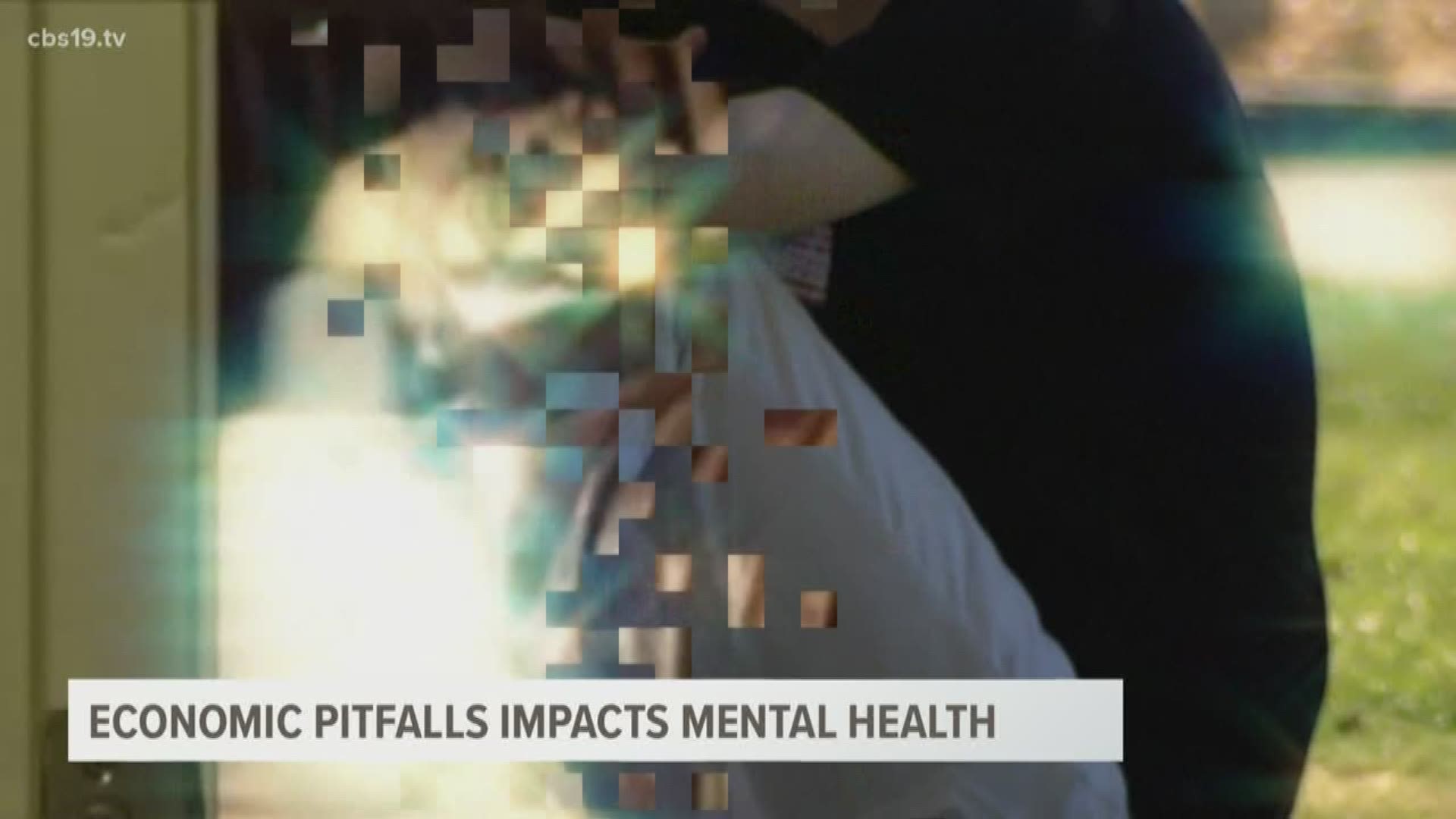TYLER, Texas —
Across the country, calls into suicide hotlines are on the rise. The State of Michigan reported Tuesday suicides in the state could rise as much as 32%.
The cause is the COVID-19 pandemic. However, it is not that simple.
"It can definitely be consequential to leading to depression and all other sorts of struggles," Jennifer Wood, co-owner of The Bridge Therapeutic Counseling said. "By design, I believe we were created to connect."
Many are dealing with anxiety, fear, depression and stress. In the thick of the pandemic, a New York city emergency room doctor who treated COVID-19 patients, committed suicide Sunday.
"I think people often think that being strong means standing by yourself, not having people help you, but that I don't believe that's true at all," Wood said.
She says negative emotions could consume anyone during this time.
After the pandemic ends, the residual effects of economic distress and job loss could impact emotional well beings. The National Library of Medicine National Institute of Health, suicide rates rise when there is an economic recession.
"A person's work is highly influential over a person's mental health," Wood said. "No doubt about that, because our work is so closely related to our purpose and what contributions we make."
According to The National Center for Health Statistics, suicide rates rose 35% between 1999 and 2018. In Tyler, there were 14 suicide related deaths and four attempts in 2019. Smith County has the highest suicide rate per capita among the 25 most populous counties in the state.
"These are the kinds of emotions that people would experience if they lost their job or their business was at risk," Wood added.
Suicide rates may continue to increase across the nation. However, there is help available.
"Reach out. You reach out to people that you trust that you can be real with," Wood said. "Maybe they don't have all the answers. But you can know you're not alone, because everybody needs encouragement."
If you need help, call the National Suicide Prevention Lifeline at 1-800-273-8255. The hotline is open 24/7 and staffed by experts who will take time to care for you.

